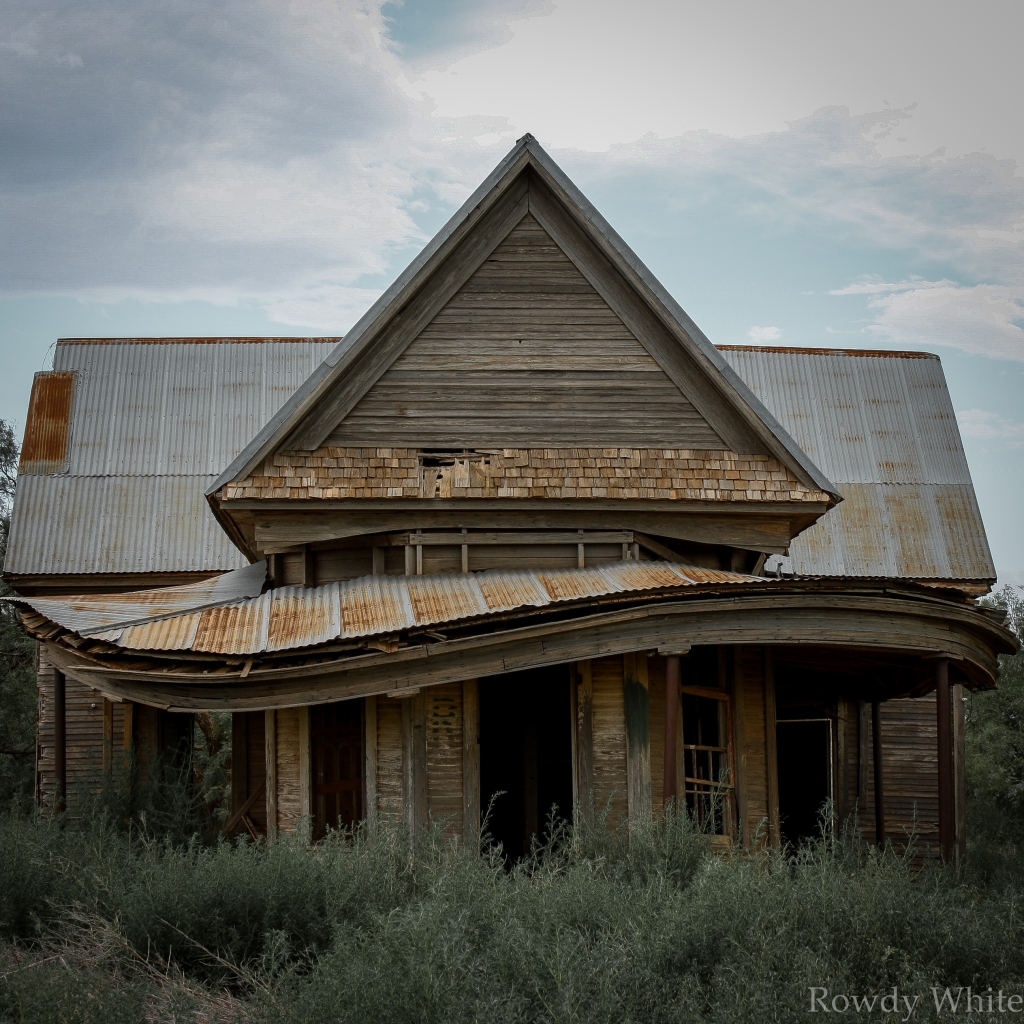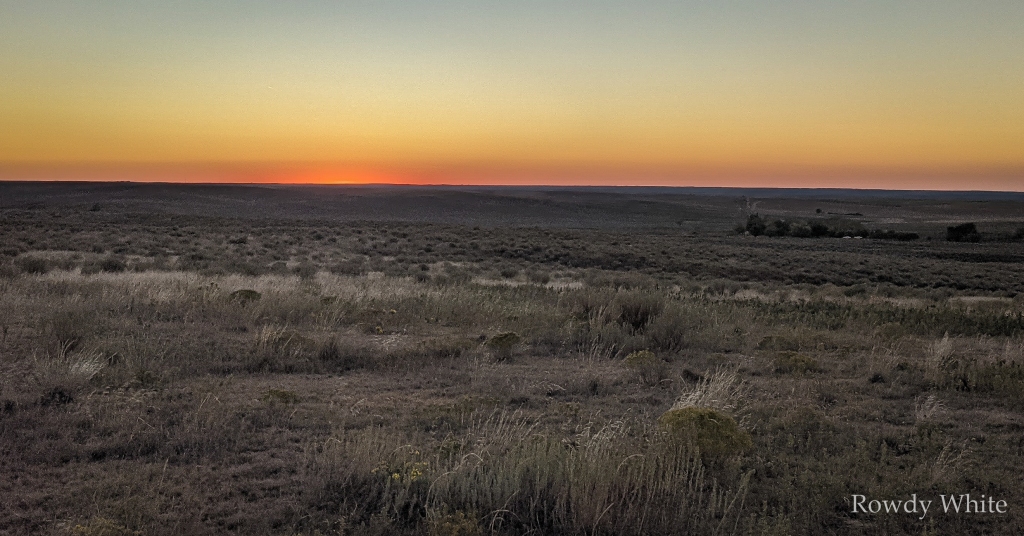Early on the morning after payday my mother and I would load an old cooler into our old station wagon and drive to town for groceries. Early to beat the heat as the station wagon did not have air conditioning. Early to beat the crowds. I was never part of the planning process, but there was always a plan. Round steak was 23 cents off at this store. Canned goods were always cheaper at that store. The trick was to be early enough to buy the dry goods first and go to the store with the best sale on meat last, but still early enough the cheap meat was not sold out. If times were good.
If times were bad, it didn’t matter how cheap the meat, it was out of reach. During those times, we sometimes lucky to have a bit of venison or rabbit in the freezer, but sometimes there wasn’t even that.

In the fresh produce section, we would get potatoes and onions and iceberg lettuce. Sometimes a prepackaged bag of the smallest red (un)delicious apples, but usually not. If we had a garden that year, then we wouldn’t get much else. Either we had some fresh produce in season, or my mother had canned what we didn’t eat when it was in season. The dry goods were from the center aisles, and everything came in white labels. These were not the Hill Country Fair or Signature or Great Value store brands. These were the true generics. No brands, just a description in black ink on white paper. CORN FLAKES. TEA. COFFEE. GREEN BEANS. I want to say they ate the same as the name brand, and some things did. Flour is flour. Sugar is sugar. But the tea was wretched and metallic tasting. We would sacrifice other things to buy Lusianne tea. Whenever I saw generic tea in the house, I knew we were in a bad way. Even worse if there was none. I thought my best friend was rich since he lived in a doublewide and his sandwiches had more than one piece of meat that came from a brightly colored package with a brand name.
These white label products were introduced during the high inflation of the 1970s, and according to the New York Times in 1986 [right], they were already falling out of favor. I can’t speak to national trends, but in 1986, we were still buying them out of need, not favor.

Sometimes we were on welfare, other times not. The food stamps were brightly colored compared to cash, and I didn’t understand why my mother was ashamed to use them. I thought they looked neat. The commodities were hit and miss. Powdered milk is okay in cereal. The cheese and butter were so good it is still a meme today. The canned pork and beef were not good. A layer of fat and grease over chunks of tough meat that was both bland and horrible tasting all at once. My mother could make it palatable only in tamales, though she tried many different things. Despite that, I’m still thankful for the USDA commodity program. It was still better than the few times that supper was a few beans, bread and drippings though.
In the late 80s we had the dubious good fortune of my father getting injured at work enough that it required neck surgery. Money and food got really tight for a long time after he couldn’t work, but then we got the settlement. Ten thousand dollars isn’t much for a couple fused vertebrae, but suddenly a trip to town sometimes meant a bag of 39 cent party tacos and burritos instead of “shut up, we’ll eat at home.”
It wasn’t a lot of money, and it didn’t last long. But for all my father’s failings, he did one thing that has always stuck with me. We built floor to ceiling, wall to wall shelves and filled them with flats and cases of nonperishable food. Cans of corn, green beans, baked beans, ranch style beans, fruit cocktail, cases of every flavor of ramen soup, sardines, Vienna sausages, crackers, buckets of pickles, sacks of flour, sugar, and dried beans and sacks of rice filled the shelves. We also bought cases of store brand soda: cola, lemon-lime, root beer, orange, grape, and even some Dr Pepper. Then we filled a deep freezer with half a beef from the butcher shop. I can’t remember how long that pantry lasted, but we ate well for a long while.
Looking back at what we bought, I recognize how some readers would shudder at the choices. No one thinks of Vienna sausages, ramen soup, or grape soda when the phrases “food security” or “healthy” are mentioned. It also speaks to the mindset of long-term poverty: thinking of the next meal often makes thinking of the long-term costs impossible. Nevertheless, there was a stretch of time where I don’t remember being hungry, and I remember the sense of safety looking at those shelves brought. There was also a feeling of splurging to have a carbonated beverage.
Thirty-five years later and I am as free from want as I have ever been. I live in a rundown house in a run-down neighborhood, and I drive a rundown truck paid for on a biologist’s salary. But I feel free. I’m not as careful with my money as I should be, but I can buy the foods I want, and the cupboard is always full. I have more books than shelves. I never lie in bed dreading going to work in the morning.
I’ve never been on welfare as an adult.
But I remember that feeling of want.
The feeling of want that comes with being poor isn’t that bit of want you feel between leaving the gym and when supper is ready to eat. It is long. It is constant. It is days, weeks, months of being surrounded by things you can’t have, or worse, that you could buy and be satisfied for a meal and then not have three meals near the end of the month. If you have not been food insecure for a stretch of time, you do not know that feeling, even if you think you can understand it. You’ll see those who least understand it railing against welfare programs, claiming they saw a welfare queen with a cartful of expensive foods while having never felt the morale boost of fresh beef after a month of none, or giving their kid a candy bar after having to say no for the longest time. These people will finish up their rant by saying that people would rather be on welfare than work, even though 75% of people on welfare are either currently working or start working within a year of being on welfare. Even if the welfare queen lies were true —they largely are not— I would still gladly support spending more money on assistance programs. I remember real hunger, and I remember eating after being truly hungry.
At the start of the pandemic people were panic buying food and toilet paper for no reason, some of these people were the first time faced with the experience of walking into a store and not being able to buy what they wanted. It was a temporary situation created through senseless panic, but I am somewhat glad some people got a little taste of unrequited want. For once their privilege doesn’t automatically exclude them from a part of the human experience they would rather not face. I am not idealistic enough to think they’ll learn a lesson from this, but I am satisfied they got the experience.
Before you get angry at my use of the word “privilege”, take a moment to understand what it means. To paraphrase Reggie Shuford, privilege does not mean your life hasn’t been difficult; it just means it may not have been difficult because of your race, socio-economic status, gender, etc.
At the start of the pandemic people were panic buying food and toilet paper for no reason, some of these people were the first time faced with the experience of walking into a store and not being able to buy what they wanted. It was a temporary situation created through senseless panic, but I am somewhat glad some people got a little taste of unrequited want. For once their privilege doesn’t automatically exclude them from a part of the human experience they would rather not face. I am not idealistic enough to think they’ll learn a lesson from this, but I am satisfied they got the experience.
Looking at empty shelves where the beans, rice, and ramen once were, I can also understand the feeling of safety now felt by those bought them out of panic, even I realize the senselessness of it.
At a glance, this story may not strictly fit the Dry Country criteria, but the bones of dryland poverty are there, and I chose to include it anyway. If any of this saddens or angers you, either because you are sad/angry that our neighbors are going hungry or because you are sad/angry that people are eating free at the taxpayer’s expense, here is a solution: While that emotion is still fresh, donate to your local food bank. Help a family not be hungry/not need government assistance. Consider it a gift, or even an investment on the possibility of someone getting out of poverty enough to write you sentimental stories you read on social media.









